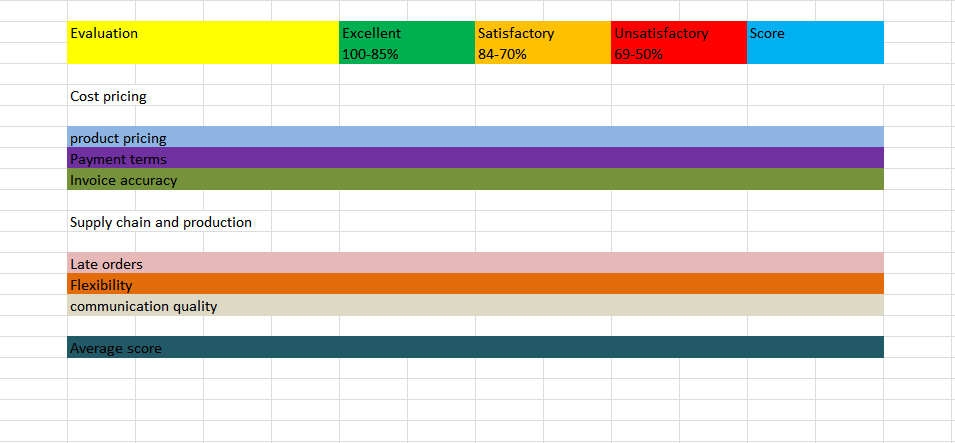How to Become a Supply Chain Manager: A Practical Guide
Becoming a successful supply chain manager requires a diverse set of skills and knowledge. Your role encompasses building strong relationships with suppliers, sourcing high-quality materials, overseeing production processes, and developing strategies for efficient distribution channels. Managing these interconnected activities effectively is essential for smooth company operations.
Though the responsibilities are demanding, the role is rewarding with competitive salaries and significant influence over key operational functions within a company. This guide breaks down the core skills and steps to help you advance into this dynamic career path.
Essential Skills for Supply Chain Managers
1. Mastering Negotiation
Negotiation is critical when dealing with suppliers. Getting the best materials at the most competitive prices can save your organization significant costs, which can then be reinvested into growth opportunities.
- Treat negotiation not just as a skill but as an art form reflecting both preparation and strategy.
- Learn techniques such as BATNA (Best Alternative To a Negotiated Agreement), active listening, and win-win approaches.
- Enroll in online courses or workshops to sharpen negotiating capabilities—many free and paid options exist.
2. Understanding Business Management Fundamentals
Strong business management skills help you stay organized, prioritize tasks, and coordinate diverse supply chain activities efficiently.
- Focus on developing project management, strategic planning, and leadership abilities.
- Even basic certifications in business management can provide valuable frameworks and tools.
- Utilize business plan or marketing plan templates to practice organizing operational strategies.
3. Investing in Formal Education
A degree in fields such as supply chain management, logistics, transport management, or international business lays a solid foundation.
- Pursue internships or graduate training programs to gain practical experience alongside academic knowledge.
- Starting in entry-level roles like transport clerk helps you understand on-the-ground operations.
- Continual learning and certifications (e.g., APICS Certified in Production and Inventory Management) can advance your credentials.
Industry-Specific Considerations
Supply chain roles vary by industry. Tailor your skills with relevant niche knowledge.
Manufacturing Sector
- Focus on production scheduling and inventory management to minimize downtime.
- Develop skills in Lean and Six Sigma methodologies to enhance efficiency.
Retail and E-Commerce
- Learn demand forecasting and last-mile delivery optimization.
- Understand customer experience impact from supply chain decisions.
Healthcare and Pharmaceuticals
- Emphasize compliance with regulatory standards and cold chain management.
- Develop strong supplier relationship management to ensure material quality.
Tools and Techniques Every Supply Chain Manager Should Use
- Scorecards and KPIs: Use supplier performance scorecards to monitor efficiency and quality. This drives improvement over time.
- Financial Planning Templates: Integrate budgeting and cost tracking using financial plan templates to keep projects profitable.
- Automated Reporting: Leverage automated reporting tools for real-time updates on supply chain metrics.

Step-by-Step Action Plan to Become a Supply Chain Manager
| Step | Action | Example Activities |
|---|---|---|
| 1 | Build foundational knowledge | Enroll in supply chain and business management courses; complete certifications |
| 2 | Gain practical experience | Work in entry-level logistics or procurement roles; participate in internships |
| 3 | Develop key skills | Practice negotiation, project management, and data analysis |
| 4 | Leverage tools | Use scorecards, financial templates, and automated reporting for informed decisions |
| 5 | Network and build relationships | Attend industry events and collaborate with suppliers and cross-functional teams |
| 6 | Advance into management roles | Seek promotions, manage larger projects, and mentor junior staff |
Tips to Excel as a Supply Chain Manager
- Stay updated with the latest supply chain technologies like AI and blockchain.
- Focus on continuous improvement and be proactive identifying bottlenecks.
- Communicate clearly with stakeholders at all levels of the organization.
Following this structured plan and continually refining your skills will position you for growth and success in the supply chain management field. By combining education, hands-on experience, and powerful management tools, you can drive operational excellence and build a rewarding career.
If you’re ready to streamline your path and expand your business skills, explore the Business Plan Template to organize your strategic career and project goals effectively.






























